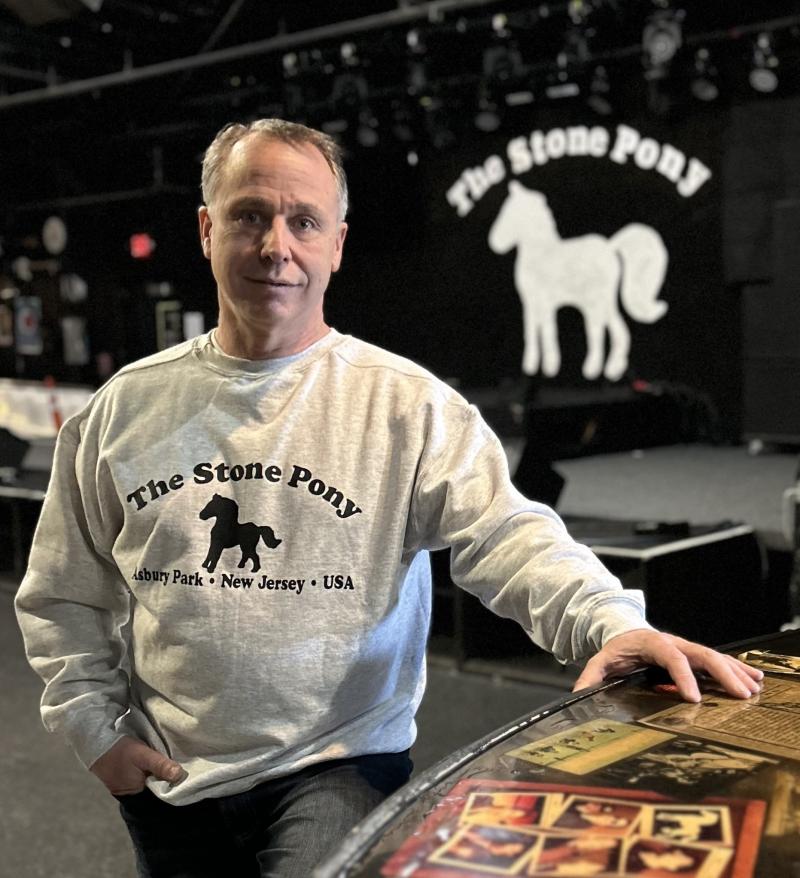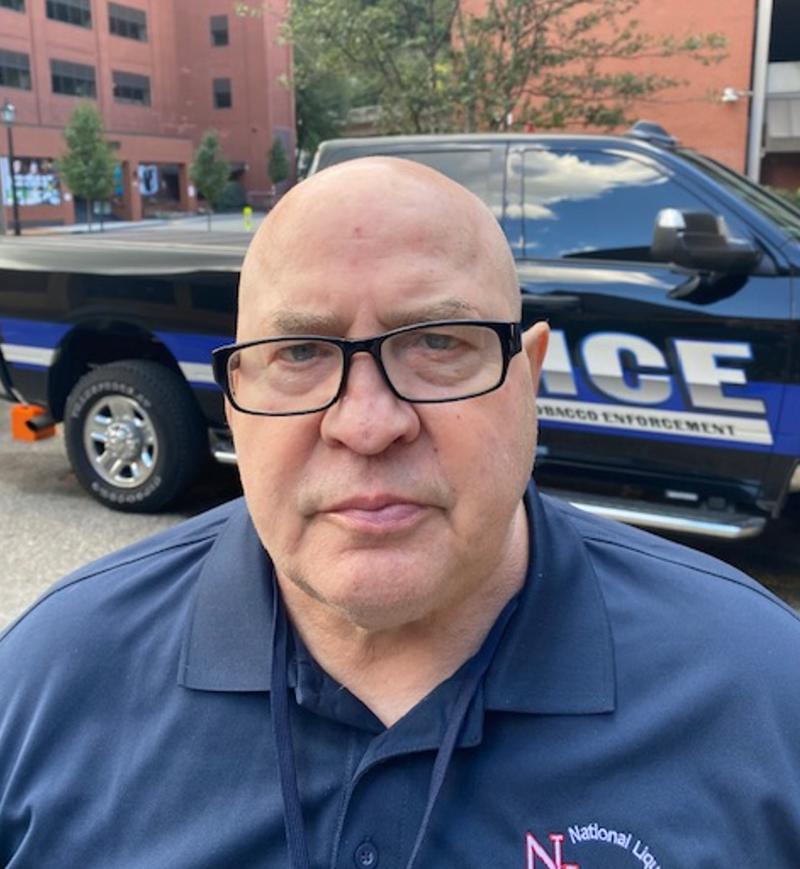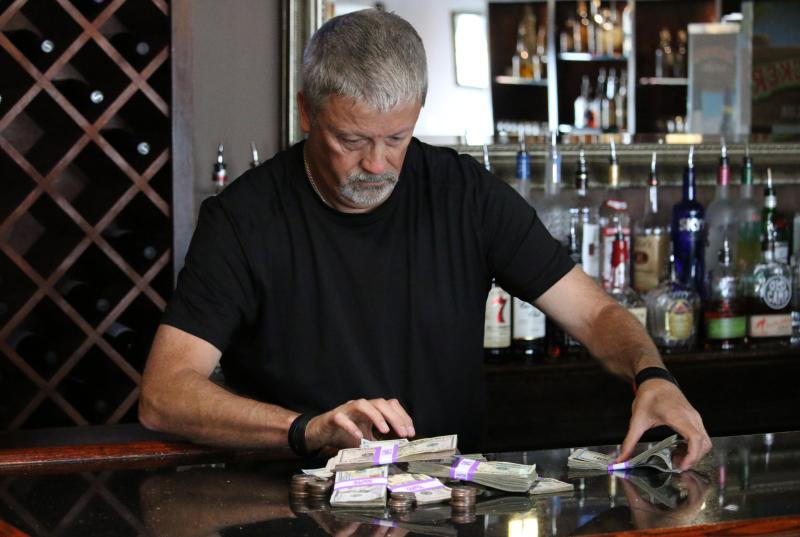Howard Cannon, a well-regarded restaurant expert witness, author, and one of America’s top restaurant/bar and foodservice consultants, truly loves this industry.
He’s worked in the bar and restaurant space for more than 40 years, and he even wrote the book of OSHA restaurant industry standards and best practices in 2016 (OSHA is the Occupational Safety and Health Administration of the U.S. Department of Labor).
“The most important happenings in all of our lives happen in restaurants and bars, and most people don’t think about that,” said Cannon, whose primary business is focused on being an expert witness in industry-related court cases, but he also helps operators with safety issues.
According to Cannon, the bar and restaurant industry is quite dangerous.
“From a big picture perspective, most people don’t realize that restaurants and bars are the most dangerous industry in the United States… we have more incidents, accidents, events, mishaps that happen to both customers and employees – everything from rapes and murders and wrongful deaths, to slips and falls and bar fights, and people falling off chairs, etc.,” Cannon said. “And then when you add alcohol to it – needless to say – the likelihood of an incident happening goes up exponentially.”
Cannon believes that bar and restaurant operators can get caught up in the day-to-day issues of running an establishment, easily neglecting their focus on safety and responsible alcohol service. Things like driving sales and profits, finding and hiring employees, getting employees to do their jobs, or improving costs can sometimes take precedence with some operators. However, he said that since this is the hospitality industry, it needs to be about people first and foremost.
“You can’t have much of a focus on safety if you don’t truly love people – the ones working for you and the ones you’re serving,” Cannon explained. “And the key to hospitality is keeping people safe. That’s the bedrock of it all.”
Indeed, because the industry can be a dangerous place, it’s critical that a culture of safety is created at every establishment and that risk management is top-of-mind and cultivated on a regular basis, according to Cannon.
“It doesn’t take a lot to help people understand that if you recognize hazards, our job is to resolve, mitigate, eliminate, warn of, and train for whatever hazard is staring us in the face,” shared Cannon. “That hazard could be alcohol serving, underage drinking, over consumption; of course, it could also be slips and falls that come from alcohol instances; it could be bar fights that come from alcohol instances, rapes and murders that come from alcohol-related incidents.”
So, what do operators need to do to ensure a safe establishment? It all boils down to policies, procedures, and proper training.
“Restaurants and bars that do not have engaged, well trained management and staff have significantly more incidents, accidents, mishaps and people getting injured, harmed, sickened, maimed and killed than those who do have engaged people,” revealed Cannon.
Policies, Procedures and Training: The Key to Bar and Restaurant Safety
Industry leader Jeffrey "Jeff" Jannarone said that when it comes to safety and responsible alcohol service, policies, procedures, and training is critical. “It all comes down to that,” said Jannarone, who’s a dram shop and public safety practices expert with Exigent Group Limited, and an expert witness and consultant with Jannarone Consulting. His experience with alcohol and safety training includes being a TEAM Coalition and TiPS program trainer, as well as a Techniques of Alcohol Management (TAM) master trainer.
“Policies: You have them or you don’t,” Jannarone explained. “They can be written or oral. And then you implement your policies and procedures through training. And then the next part is enforcement of your own policies and procedures. I can have an eight-book binder of policies, but if I don’t train you to know what they mean, what good are they?”
When considering policies, procedures and training, Jannarone noted it’s important to remember that there are two different groups in the industry – the national bar/restaurant chains and the independents, or “mom and pop” establishments.
Jannarone said the big national chains have everything documented when it comes to policies, procedures, and training; however, sometimes the training is only done during the onboarding of new staff. “So, what happens if you’re an employee who gets training during onboarding and works for 10 years? Do they remember the training all those years later?” he asked. Jannarone said there’s also a lot of turnover in the industry, so training can get lost in the shuffle.
On the other spectrum, the smaller, independent bars and restaurants may not have the same high-level documentation and training as the large venues or national chains. Still, he said, “The majority of purveyors do the right thing.”
One issue Jannarone sees with the national chains is that some create policies and procedures, but they do not combine that with the various state laws where their venues are located. “Look at each state,” he said. “Florida has a habitual drunkard standard. Pennsylvania has a visually intoxicated standard. Texas has an obviously intoxicated standard. South Carolina has an intoxicated standard. So, what is it? And that’s where the national training programs fall apart. They teach the basics, which is awesome, and I’m never against training, but at the end of the day, if you don’t train people to your state’s policies and laws, and rules and regulations, you’re failing.”
National chains – as well as hospitality groups with venues across different states – must create and update their policies, procedures, and training on a case-by-case basis for each state. Jannarone said: “Know the laws, rules and regulations where your establishment is… not knowing the law is not an excuse. You can have all the policies and procedures you want, but if you’re not training to the right standard, it’s pointless.”
Whether you’re a national chain or an independent, Jannarone thinks it’s vital to create a positive culture focused on safety, with great management, the right staff members, and ongoing training. “Know the rules you’re operating under," he said. "And then you’re going to create your policies that are in compliance with those rules. And then you need procedures to make sure that people are implementing those rules by training them. And then, of course, enforcing it.”

Make Safety Training a Priority at Your Bar or Restaurant
Robert “Bob” Pomplun is the founder and president of Serving Alcohol, which offers online, responsible alcohol training for bars, restaurants, on-premise establishments, and professionals in the hospitality industry. He was also a bartender for more 20 years and has three decades of experience in the hospitality industry as an alcohol certification consultant, instructor, manager, and coordinator.
Pomplun believes operators need to train and empower their employees to care for the well-being of their guests and the establishment, and that staff should be the best judge of safety and responsible alcohol service – not just managers and owners.
“Staff need the benefit of ongoing training to understand the legal requirements of service, and the ability to control and modify the attitude of aggressive alcohol consumption,” said Pomplun. “Reinforce the message to staff and to patrons that the servers are the best judge of the patron’s needs as well as their limits.”
Regarding training, Pomplun noted that he likes to tell operators that those businesses that help themselves in this area will most likely be the ones to grow and thrive. “Training is not regulated in some states, and mentors are not used to their fullest in some establishments,” he said. “There are always ways for a business to stay ahead of safety and maintain a safe environment. Your more experienced staff can and should mentor newer employees on what to expect, what to look for and what to do.”
Pomplun suggested that operators train every server to anticipate situations that could become out of control. “Know best practices for de-escalation, such as not walking two potential combatants out the same door,” he said. “Know what’s happening outside your business in the parking lot and on the street; that is where problems may come from, and that’s where problems inside can possibly end up.”
One common industry mistake that Pomplun sees, related to training, is that many operators do not post house policies in prominent places and at the entrance. “House policies bring visibility to how the establishment will be run, and they ensure that you, your employees, and your customers know the ground rules,” he revealed. “House rules can be stricter than state and local ordinances, and they exist to make the general public feel safe and aware of the guidelines for drinking and patronizing your business.”

Operators Need to Engage Employees When It Comes to Safety and Training
According to Cannon, safety and responsible alcohol training has to be easy to understand for employees, as well as engaging. It also has to be ongoing – from the first day of employment to the last day.
“It’s got to be engaging and interesting,” said Cannon. “You can’t have it be boring and disconnected because it’s harder for employees to remember. It’s got to be thorough. It’s got to be in both writing and verbal, and hands-on so you can see the action in the field.”
Cannon revealed that at many bars and restaurants, management is usually not engaged with employees, especially when it comes to training and on-the-spot training. In fact, sometimes they’re sitting in a back-office all day.
“Back in the day when I started in this industry – back in the late ‘80s – we didn’t have any time in the office at all,” said Cannon. “You were on the dining room floor or behind the bar serving people, or you were checking something that was going on in the kitchen, or the dining room, or what have you. You weren’t in the office. And today, operators tend to be in the office a lot. And that causes nothing but problems. Employees want to see their boss in the trenches with them… Employees will not care anymore than their boss does.”
To encourage a culture of safety and responsible alcohol service, and to better engage with employees, bar and restaurant owners/operators need to point out and discuss errors with staff when the action or in-action takes place, noted Cannon. “We’ve somehow gotten into this era where, ‘Well, give me positive feedback in front of everyone, but don’t give me any corrective feedback in front of everybody,’” he said. “And then I sit here and go, ‘Well, that’s impossible.’”
He said staff needs to be able to accept corrective feedback at any point during a shift, especially in the middle of rush hour. “Does that mean I’m going to yell and scream at you? No, but I’m going to point it out and say it’s something we need to work on, and I want to see instant improvement on it. The key is to be engaged and provide coaching and leadership and positive reinforcement and corrective feedback all during the course of a shift,” said Cannon, who believes that a restaurant or bar operator can’t walk past a dangerous situation and not resolve it.
In the end, shared Cannon, management must engage in hands-on training with employees on an ongoing basis, and follow-up regularly to ensure that they’re meeting the standard that’s expected from the venue’s safety and alcohol service training.
And if your bar or restaurant needs a little help with its safety and responsible alcohol service efforts and training, Cannon indicated there are plenty of consultants and experts who can teach the key skills and connect the dots. However, he said, some operators do not want to use outside help because of the cost or the idea that there’s not a benefit. “The alternative is you can wait until something bad happens and see how it goes,” he concluded.

Aaron Kiel is an editor, writer and public relations professional in Raleigh, N.C. He’s worked in the beverage, tea and coffee industries for two decades, as well as hospitality and technology. He’s a journalist at heart, but he also wears a PR and communications hat through his consultancy, ak PR Group. He’s a contributing writer/reporter for Questex’s Bar & Restaurant News, and he recently worked as the editor of World Tea News with Questex’s Bar & Restaurant Group. In 2023, he was a finalist and honorable mention in the “Folio: Eddie & Ozzie Awards” for Range of Work by a Single Author – B2B.” Connect with him on Instagram: @adventurer_explorer.
Plan to Attend the Annual Bar & Restaurant Expo
To learn about the latest trends, issues and hot topics, and to experience and taste the best products within the bar, restaurant and hospitality industry, plan to attend or participate in the annual Bar & Restaurant Expo. Visit BarandRestaurantExpo.com for details.
To book your sponsorship or exhibit space at the next Bar & Restaurant Expo, contact:
Veronica Gonnello (for companies A to G) e: [email protected] p: 212-895-8244
Tim Schultz (for companies H to Q) e: [email protected] p: 917-258-8589
Fadi Alsayegh (for companies R to Z) e: [email protected] p: 917-258-5174
Also, be sure to follow Bar & Restaurant on Facebook and Instagram for all the latest industry news and trends.
